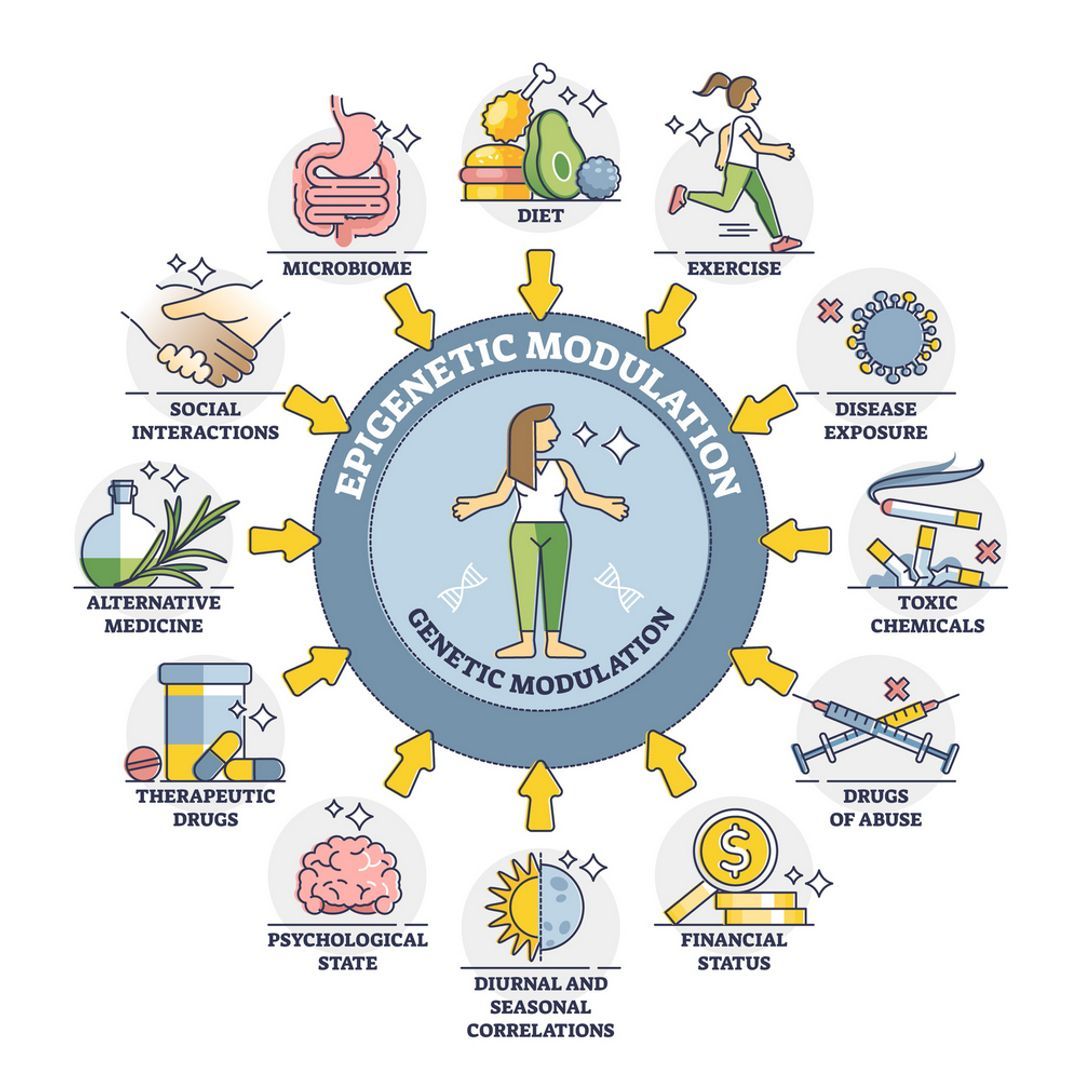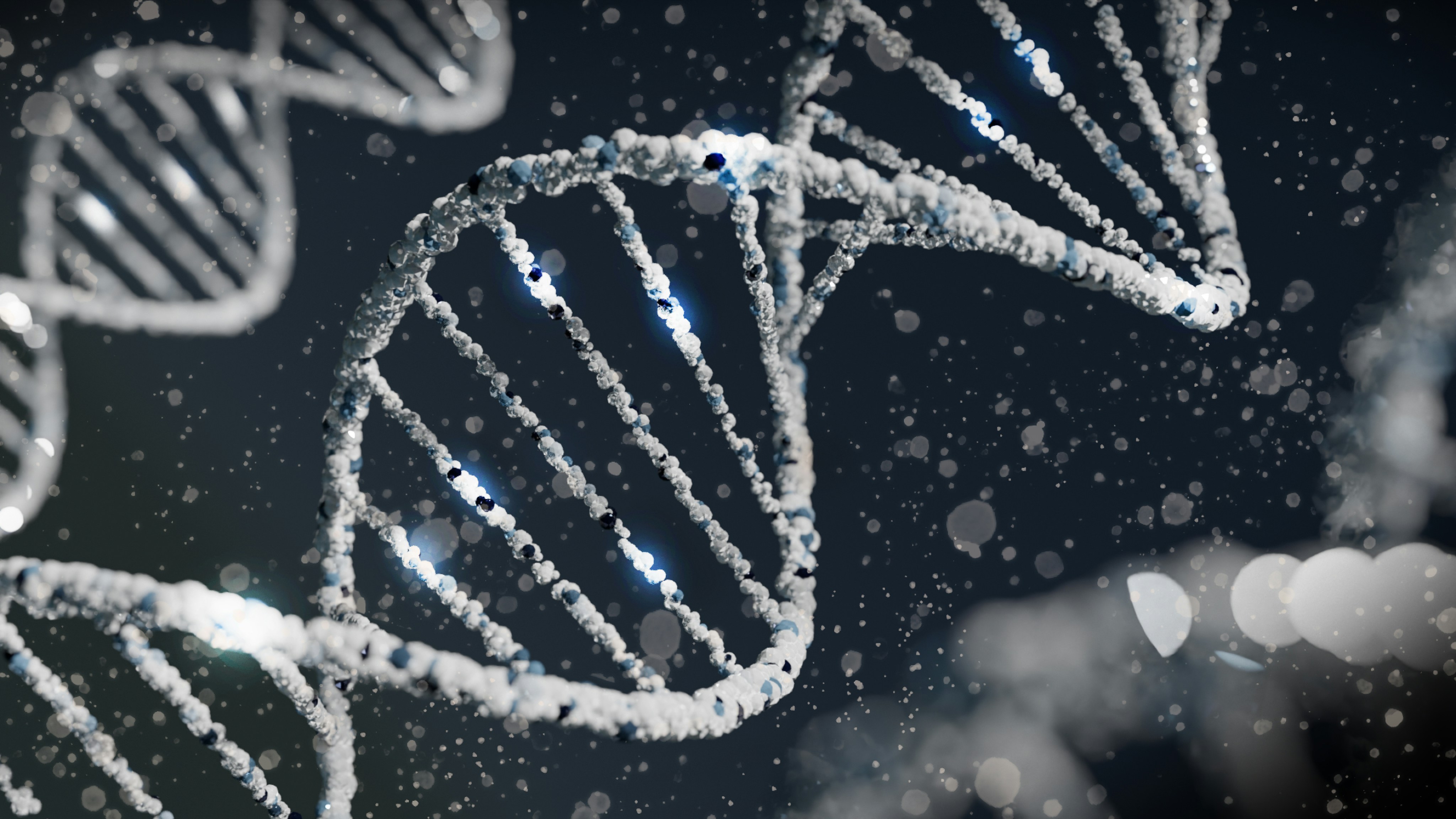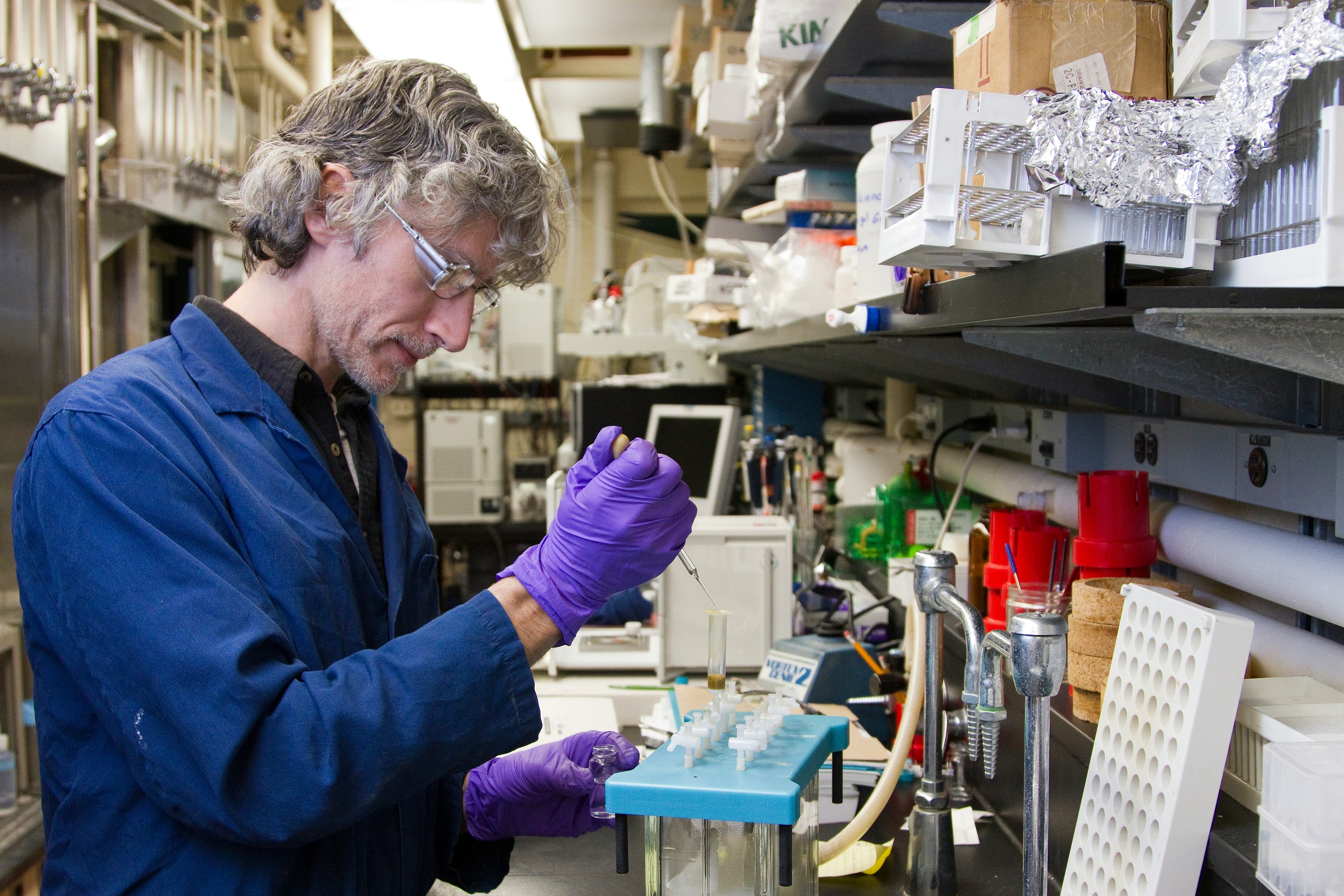5 23andMe Alternatives And Competitors Worth Knowing About
Searching for cheaper alternatives to 23andMe DNA tests? Want to find DNA tests similar to 23andMe kits? Click here for the best 23andMe alternatives.

By The GlycanAge Team
An interest in learning about one’s genetic makeup, specifically its impact on health, is more popular than ever. With this surge in popularity in recent years, a whole host of at-home genetic health testing kits have exploded on the market.
Such tests require a small saliva or blood sample to conduct a DNA health analysis. While the procedure is pretty straightforward, deciding which kit to invest in is the difficult part.
With increased accessibility to DNA health testing and countless companies claiming to offer accurate, precise and comprehensive results, it can quickly become overwhelming to figure out which test is right for you.
How can a DNA test improve my health? Which DNA test is most accurate? Which company can be trusted with my data?
This article explains everything you need to know about DNA health testing kits to make an informed decision about your purchase, providing answers to your most pressing questions and concerns and exploring which DNA tests are best to gain health insights. Keep reading to learn more.
For the most part, all the different DNA tests are fairly similar: you provide some personal background information, order a test kit, provide your DNA sample, mail it to the lab, and wait for your results. 
However, there are some variations depending on your reason for taking a DNA test and the type of test you use. For example, some tests require a finger-prick blood sample, while others require a saliva deposit or cheek swab. Moreover, different labs employ different methods to analyse your DNA sample based on the focus of the results.
Some tests focus solely on health, while others factor in genetics and ancestry information for a more comprehensive overview. Depending on this scope, some tests will only assess specific sections of the DNA while others analyse 100% of the DNA.
Health DNA tests use various techniques, including DNA methylation, to make predictions about an individual’s health state.
Tests that also check for ancestry often use a technique called genotyping to gather results. This process involves studying an individual’s DNA sequence to determine variants in their genetic makeup that are unique to them.
Another method called autosomal DNA testing measures autosomal chromosomes and matches them across a database to connect individuals to unknown relatives.

Genes influence an individual’s health to a certain extent. A DNA health test can reveal information about your genetic predisposition to certain diseases, your overall nutritional health, and any vitamin or mineral deficiencies you may have.
While your genetic code cannot be altered to reduce your susceptibility to a given disease, DNA tests can provide meaningful insight into how your body functions that allow you to take proactive measures to reduce your likelihood of developing a certain disease.
For instance, if a test identifies a gene linked to heart disease, you can take early preventative action you may not have otherwise taken, such as learning warning signs, improving your diet, getting more exercise, and others
Lifestyle factors also play an important role in disease development. Certain DNA tests use epigenetics data to accurately determine disease risk before symptoms develop.
Epigenetics influences how genes are expressed. Unlike DNA sequence, epigenetic changes can be modified through long-term lifestyle improvements and the adoption of healthy habits to reduce one’s risk for specific illnesses.
Each DNA testing company has its own policy about sharing customers’ personal data which is subject to change at any time. Additionally, transparency regarding who has access to DNA databases and under what conditions can often come under question due to a lack of regulation on what genetic testing companies can do with your data. 
With that said, any reputable DNA testing company will inform customers outright if they share your genetic information with researchers or third parties, for which they will need your consent before doing so. They will also ensure sufficient measures are in place to separate identifiable information, such as your name and address, from your genetic data to preserve privacy.
With some testing companies, you also have the option to delete your genetic information from their database once you have finished using their services.
Due to the sensitive nature of the data collected and the potentially far-reaching implications of privacy breaches, it is important to carefully read privacy statements before purchasing a DNA test kit. You can then form your own judgements on whether the respective testing company has rigorous rulings in place to garner trust.
The level of accuracy and precision of DNA health test kits largely depends on various factors, including:
With advancements in science and technology, at-home genetic testing kits have become increasingly accurate in providing key health insights; however, they are not diagnostic tools and, therefore, should not be used as a basis for medical treatments and interventions.

With that said, you can share your results with your doctor, particularly if you discover a higher risk for certain diseases or illnesses. Your doctor can then conduct further assessments and ensure you receive adequate care.
23andMe has been a frontrunner for at-home genetic testing for a long time, offering both preliminary health information and a deeper insight into your ancestry.
The company boasts a database of over 12 million people, certain health tests that are FDA-approved, and access to over 40 premium health reports detailing whether you carry a gene for an inherited disease, such as Alzheimer’s or Parkinson's, or are predisposed to certain conditions, such as high blood pressure, eczema, irritable bowel syndrome, and more.
On the ancestry side of things, results provide a breakdown of ethnicity estimates, and with a subscription, you also get access to advanced search options where you can locate your ancestral origin and migration, as well as current relatives, on an interactive map.
You order the health and ancestry kit directly from the 23AndMe website. Once you mail your sample to the Clinical Laboratory Improvement Amendments (CLIA)-certified and College of American Pathologists (CAP)-accredited labs, you’ll receive your results in three to five weeks. 
It’s important to note that 23andMe tests do not conduct full DNA sequencing analysis. Additionally, there are some privacy concerns as the company monetises customers’ anonymised data through their partnership with pharmaceutical company GlaxoSmithKline; however, you can opt-out out of participating in such research.
One 23andMe test cost $99.00.
With 100% DNA sequencing, Nebula Genomics offers the most comprehensive DNA test analysis out of all other tests on this list.
The advantages of purchasing this test include ongoing access to new reports as they become available, and direct support from geneticists. The test ensures the highest level of accuracy by decoding more than 20,000 genes across the entire DNA sequence and scanning each location around 30 times.
You have full ownership and control over your raw DNA data; the company won’t sell it to third parties, and you have the option to download the data to explore your health further however you like.
Many customers may find the sheer amount of information overwhelming and difficult to interpret.
To address this issue, they break this complex data into various levels of understanding, including personal risk factors for disease, drug and food sensitivities, and your carrier status of a mutated gene. You also receive a detailed report on your ancestry, geographical origin, living relatives, and health risks.
But along with the incredibly accurate results and a stringent privacy policy comes an incredibly high price. Moreover, expect to wait up to 12 weeks to receive your report.
There are 2 packages to choose from, ranging between $249 to $899, and both require an additional membership, which increases the price even further.
AncestryDNA holds the largest customer database of over 20 million people, allowing for more comprehensive results and increased family matches.
The Ancestry Health test checks for basic genetic risks and carrier status gives access to genetic counselling resources and provides an online tool to track your family’s health over generations. Although the personalised health reports aren’t as robust as those of other tests on the market, you have the option to download your raw data and run it through alternative algorithms for a deeper health insight.
For people wanting to conduct historical research into their family tree or find relatives, AncestryDNA offers the best technology, featuring geographical locations from over 1,500 regions.
For those searching for a rigorous DNA health analysis, other tests listed in this review may be a better option. The reason being, that AncestryDNA doesn't track your maternal nor paternal heritage and doesn't trace ancient migration paths.
The company also collaborates with for-profit and non-profit organisations for biomedical research and, therefore, shares the anonymised genetic data of consenting customers.
Test kit prices range from $99 to $199, with a membership required to access most features.
The Invitae test is a great tool for gaining a complete picture of your health status and empowering you to make healthier lifestyle choices.
The test checks up to 147 genes to provide insights into genetic risks for cancer, heart disease and other inheritable conditions.
The test’s focus on conditions that can be prevented or treated if discovered early empowers individuals to take appropriate action based on their results. The company also offers a complimentary one-hour genetic counselling session with an expert to gain a deeper understanding of your health status and how to improve it.
The Invitae Genetic Health Screen test is currently only available in the United States, Canada, and Australia.
You will need a referral from an independent physician through the Invitae official website to access a genetic health screen test. The physician will review your health history and approve the test, if appropriate before you are able to purchase it.
The price of the test isn't publicly listed on the website.
Toolbox Genomics is an epigenetic test that studies changes in your genome, more specifically, how lifestyle, daily actions, and environment influence gene expression.
The saliva sample is analysed for over 1,000 genetic markers and provides results on 16 health predisposition traits, including immunity, stress, mental health, gut health, and more.

Your personalised health report includes recommendations on combating your genetic predispositions through tailored diet, exercise, and supplement advice.
If you want to look into specific conditions, you'll have to add them to your test one by one, raising the price.
The price of the test isn't listed publicly on the website.
MyHeritage is a great DNA test for figuring out your family history.
This is the cheapest option on the list, simply because it gives you the data on your genetic makeup, without any additional information.
This test won't provide you with any information on your health, disorders, and hereditary diseases. It just helps you find any living relatives you may not know of.
The price of a one MyHeritage test is €39.
Technically speaking, the GlycanAge test doesn’t analyse genes to determine an individual’s health and lifespan. It does, however, measure glycans present in the body to assess the inflammatory state of the immune system and accurately determine the risk of age-related chronic diseases.
Glycans have a large influence on your unique biology and are regulated almost equally by genes on one side and environment and lifestyle choices on the other. A healthy balance of pro-inflammatory and anti-inflammatory glycans is essential for optimal health; however, everything from a lack of exercise and excessive stress to ethnicity and environment- can cause an imbalance of these molecules.

The test can inform you of lifestyle habits that are making your body age faster and more susceptible to disease. Based on this information, you can implement necessary changes to effectively increase your health span and even reverse the ageing process.
Once you receive your home testing kit, all you need to do is a simple finger prick test and send the results back to the lab. After 3-5 weeks of rigorous analysis to obtain the most accurate readings, your results will be ready.
Several packages are available to buy, depending on where you are on your wellness journey. If you simply want to determine your current health state, you may consider buying a single test. Two tests are recommended for those who want to track their health progress over time.
If you're not sure where to start, take our health quiz.
Each customer is entitled to a free 1-1 consultation with a scientist and healthcare professional to help them understand their results and devise a strategy to help better wellness and longevity.
Order your GlycanAge test here.
DNA tests identify mutations in your genes that indicate your risk for developing a disease or passing it on to your children. While DNA tests can detect a range of conditions, they cannot identify everything. Additionally, even if the test finds a mutation, it doesn’t necessarily mean you will develop the disease; it simply means you have a higher susceptibility than the general population. Conditions that can be detected through genetic testing include cancer, sickle cell disease, obesity, Parkinson’s disease, Alzheimer’s, sight loss, dyslexia, psoriasis, and more.
There are many benefits of genetic testing, including gaining a deeper insight into your current health state and learning how your lifestyle affects your healthspan and longevity. Such knowledge can empower you to implement the necessary changes to prevent disease progression and improve your wellness as you age.

With evolving technology and scientific breakthroughs, the accuracy, precision, and reliability of DNA tests are continually improving. The majority of tests are accurate in correctly identifying a genetic variant; however, differences in test types mean that the level of accuracy varies considerably. Tests that offer a comprehensive analysis of the complete DNA sequence will naturally be more accurate than those that only analyse a specific section of DNA. Additionally, all tests carry the risk of a false positive result, and different labs use different protocols to interpret results.

By The GlycanAge Team

Start or continue your GlycanAge journey
Don’t be afraid to reach out to us and ask questions, provide commentary or suggest topics.
Other articles you may like:
Searching for cheaper alternatives to 23andMe DNA tests? Want to find DNA tests similar to 23andMe kits? Click here for the best 23andMe alternatives.
 By The GlycanAge Team
By The GlycanAge Team Lifestyle
LifestyleLearn how to optimise your health with biohacking techniques tailored specifically to women. From sleep tracking and optimising hormone levels to practising grounding and meditation, these proven biohacks can help improve your overall well-being.